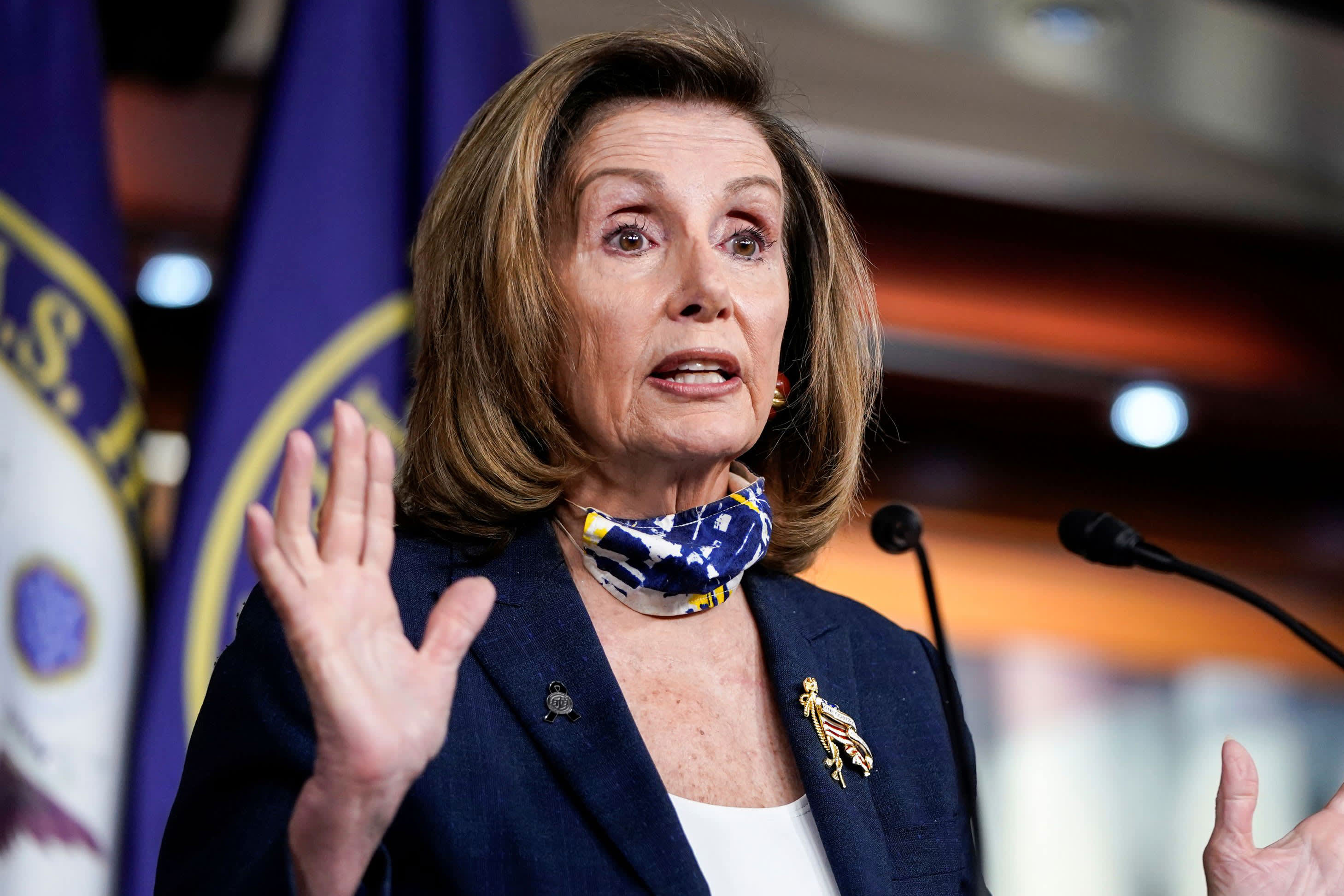House Democrats prepare new $2.4 trillion stimulus plan with unemployment aid, direct payments

House Democrats are preparing a new, smaller coronavirus relief package expected to cost about $2.4 trillion as they try to forge ahead with talks with the Trump administration, a source familiar with the plans said Thursday.
The bill would include enhanced unemployment insurance, direct payments to Americans, Paycheck Protection Program small-business loan funding and aid to airlines, among other provisions, the person said. To reach the price tag, Democrats would chop roughly $1 trillion from their previous proposal for a fifth pandemic aid plan.
The party aims to restart stimulus negotiations with the White House after talks fell apart last month. House Speaker Nancy Pelosi has repeatedly pushed Treasury Secretary Steven Mnuchin and White House chief of staff Mark Meadows to boost the administration's roughly $1.3 trillion offer by another trillion dollars.
Pelosi directed Democratic committee chairs to draft legislation, according to Politico, which first reported on plans to craft another bill. The House could vote on a bill as soon as next week, but Democrats have not yet decided on a plan, the outlet reported.
Democrats and Republicans have failed to come to agreement on more aid to combat the health and economic damage from the crisis, even after a $600 per week unemployment benefit, a federal moratorium on evictions and window to apply for PPP loans lapsed. Hopes for more legislation dwindled in recent weeks as Republicans grew wary of spending and election-year politics infiltrated the process.
House Democrats passed their more than $3 trillion aid package in May. Earlier this month, Senate Democrats blocked a roughly $500 billion Republican plan. The party put together a scaled back bill after a measure costing about $1 trillion that they released in July failed to lead to a bipartisan breakthrough.
The discussions of a proposal come as concerns grow about the potential for the U.S. economic recovery, boosted by the trillions in relief Congress has passed this year, to falter. Federal Reserve Chair Jerome Powell, among other economic experts, has warned the economy could take a hit without more fiscal stimulus.
While the U.S. has enjoyed several months of strong jobs growth after coronavirus-related shutdown led to widespread layoffs, the national unemployment rate still came in above 8.4% when last measured in August. On Thursday, the Labor Department said initial jobless claims rose slightly to 870,000 last week.
The Nov. 3 election has, of course, factored into the calculations on whether to pass more aid and how to structure it. Vulnerable Senate Republicans and House Democrats have pushed for concrete actions they can show constituents when campaigning.
As Pelosi has repeatedly said she would only pass a comprehensive pandemic aid plan, some House Democrats have pushed to approve more targeted legislation.
Subscribe to CNBC on YouTube.
tinyurlis.gdv.gdv.htclck.ruulvis.netshrtco.detny.im
